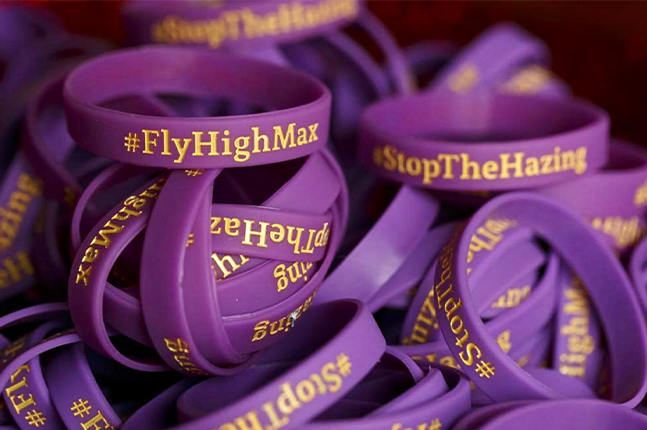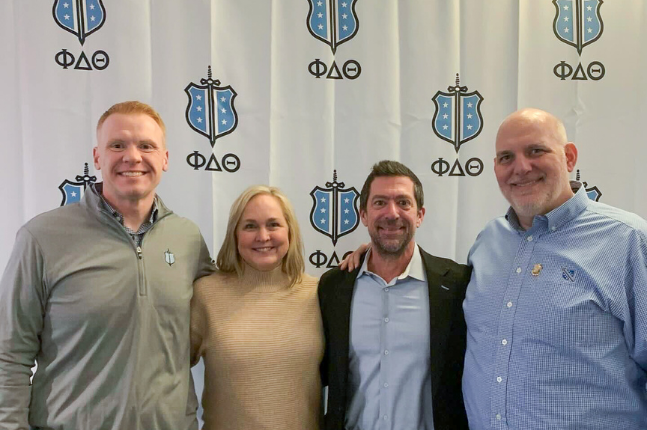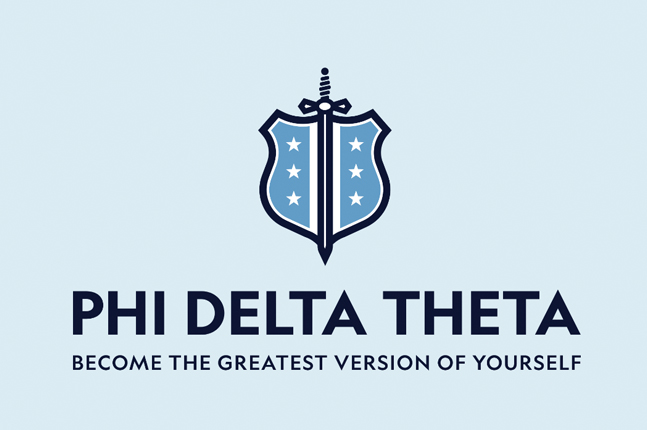By David Westol
It is one of the most frequently quoted lines from a movie.
Tom Cruise, portraying a youthful lieutenant and reluctant trial attorney is questioning Jack Nicholson, the sneering, hardboiled full bird Marine colonel in the 1992 movie, “A Few Good Men”. At a critical juncture in the trial, Cruise yells, “I want the truth!” to which Nicholson responds, “You can’t handle the truth!”
And, to paraphrase that epic line for purposes of National Hazing Prevention Week: it is the hazers in chapters who can’t handle the questions…not to mention the truth.
Let’s face it. Hazers hate questions. They simply want to haze. They don’t want to think about why they haze, or the damage they do to their chapters—the brotherhood—or the men who don’t join because of the hazing or who choose to leave because of the hazing. They don’t want to answer questions that challenge the very premise of hazing—what gives them the right to haze? The authority? Who are the hazers in a chapter? For the hazers, no questions is a good thing. They want passive victims who will not object to the hazing.
And what questions trouble those who believe in hazing?
Why are we doing this? What is the purpose…the intent? What is the outcome? What are we learning?
And we’re just getting started.
Why didn’t you tell me about the hazing during recruitment? Why did you lie to me? Why do some of the best members of the chapter refuse to take part in the hazing? If hazing is a crime and against university and fraternity policy, why would you risk the charter for hazing?
Once the hazers discover that they can’t dance around the questions—that scornful sneering arrogance and anger won’t fill the void—then the tortured rationalizations and circular arguments surface. “Well, ah, er, you just don’t get it…like, you gotta do this because I went through it and it may not seem to have a purpose right now but when you’re active you’ll get it/everyone has gone through it/it brings you together”
Really? But you didn’t answer the questions.
Why do pledges/new members have to do a disproportionate amount of the work compared to members? Why do we have to do things that we will never have to do again as members—how does that qualify as education or training? Show me a direct correlation between what you expect of us and expectations for members.
You are asking good questions.
Let’s get specific.
Why are those who advocate for hazing usually—not always—the worst members in a chapter? Why are they the ones who won’t show up for anything other than parties, sports and hazing? Why are they among the leaders in missed chapter meetings? Why do they skip initiation and Ritual? Never volunteer to help on committees or projects? Won’t pay their dues on time? Rarely attend a campus event or a regional or national event?
Now you’ve done it. You have angered the hazers. How dare you question the commitment of brothers…even though it is abundantly clear that the hazers are not (with a few exceptions) good members.
Let’s get logical.
Why do we have clean up after members? Why do we have to clean their rooms or their cars in order to obtain a signature? We sure didn’t hear about that during recruitment. Why do we have an ever-growing list of “gotta do” things—we have to carry certain items, use greetings, wear certain clothing, and enter the house or residence hall via a certain door? Why do we have to serve as DDs, as door guards, as drivers for intoxicated members who can’t or won’t take responsibility for themselves? Why do we have to interview every member, especially when some members go out of their way to dodge or avoid the interviews?
Which is more important: pledge class unity or chapter unity? Why then would you support pledge class unity?
All excellent questions. Hazers, can you handle those questions?
Silence…unless a hazer says, “Well, it’s like…you gotta do these things to prove yourselves to me/us”
Really? Do we earn our badges once…or every day? And, following the quote from Albert Einstein—“Example is not the best form of leadership. Example is the only form of leadership”—how are we leading our pledges/NMs by example through hazing?
We prove ourselves every day in Phi Delta Theta. Every. Single. Day. That is the simplest form of brotherhood…and the first thing that hazers forget.
More questions? Sure.
You talked about diversity during recruitment—that our chapter was “Diverse”. How do we encourage, support and exemplify diversity by requiring all pledges/NMs to speak, dress, act and indeed to think the same? Our chapter members don’t do that—why should we?
Wait! Don’t say it! But, the hazers always fall back on “the military argument”.
“This is like the military, dude”
No. It isn’t. First of all, what is your mission as an organization? It isn’t the same as the military.
Secondly, in the military, you have to be qualified to haze. The best of the best. Drill instructors undergo extensive training, including psychological evaluations, before they can lead recruits through basic training or boot camp. Are hazers qualified? No.
In fact, some of us in the anti-hazing movement have discussed developing a “How to Haze Your Pledges” program for fraternity members to be offered each summer. Wanna haze? Enroll here! Regrettably, it would fail for lack of participants. Few if any hazers would qualify because our standards would include a 3.5 GPA, holding at least two major offices, attending at least two national events, leadership on campus, and volunteering time for the less fortunate. And that’s way, way over the standard hazer level of achievement.
Final question: If Phi Delta Theta represents and stands for the noblest of virtues, values and ideals…why do we allow those who rarely represent those expectations haze men who have joined with the intention of living up to those expectations?
Someone must ask the questions. Will it be a courageous young Phikeia…or will it be you, a brother in Phi Delta Theta who wants to become the greatest version of yourself? Men, take the lead. Ask the questions. Step back and evaluate your program with clear eyes and one goal in mind—to create great brothers, not “good” Phikeias. Few fraternity members can say that they accomplished more within their Phi Delta Theta chapters than those who lead the charge to eliminate hazing and replace it with activities and a philosophy which reflect your proud history and bright future.
Dave Westol is an alumnus of Michigan State University and the Detroit College of Law. He served as an assistant prosecuting attorney in Michigan for nine years and as Chief Executive Officer of his national fraternity for eighteen years. Dave now has his own consulting company and focuses upon non-profit organizations and associations. He has over a dozen national men’s and women’s fraternities and sororities as clients and specializes in risk management, membership reviews and investigations along with the relationship between boards and staff members, orientation, and strategic planning. Dave is a member of the board of directors for HazingPrevention.org and the Association of Fraternal Leadership and Values. His website can be found at LimberlostConsulting.com





